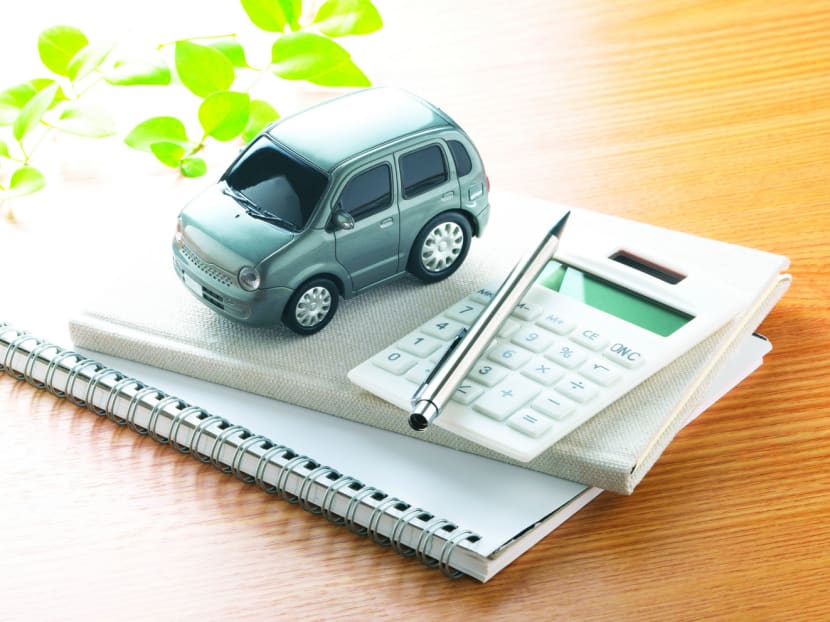How much car can you really afford?
SINGAPORE — The beauty of financing means that even if you lack the cash to pay for a car outright, you can still buy it. You just have to pay for it over time.

How much car can you really afford?
SINGAPORE — The beauty of financing means that even if you lack the cash to pay for a car outright, you can still buy it. You just have to pay for it over time.
Vehicle financing is a common practice all over the world, and just like in other countries, Singapore has its rules and regulations that govern it. Knowing them well should give you a good idea of how to set your budget for that new car, and what you need to get that loan without delay.
Here’s a handy primer on vehicle loans in Singapore.
How much can I borrow?
That depends. If the car’s Open Market Value (the cost of buying it from the factory, shipping it here and insuring it in transit) is S$20,000 or less, you’ll need a minimum down payment of 30 per cent of its purchase price. That means you can borrow the other 70 per cent.
If the OMV exceeds S$20,000, then you would have to cough up 40 per cent of the price for the down payment, and borrow the remaining 60 per cent.
How about some numerical examples?
Say you want to buy a car that costs S$100,000. Cars at that price point are likely to have OMVs below S$20,000. So this means you would need to pay a down payment of S$30,000 and you can borrow S$70,000.
A car priced at S$150,000 (which would likely have an OMV above S$20,000) would require a 40-per-cent down payment, or S$60,000 — a much steeper hurdle.
How long can I take to repay it?
Seven years is the maximum repayment period. Let’s assume that you take a loan of S$100,000 and pay the same interest rate per annum. If you repay the loan over seven years, your monthly instalments would be smaller but your overall interest payments would be greater than if you were to repay your loan over five years.
What do the banks look for when they assess my creditworthiness?
A clean credit history would be a huge plus. That means you should never skip a credit card payment or do anything that would raise a red flag at a credit bureau. Banks will consult one to get a glimpse of your credit history.
Naturally, if you have other loans to service (like a mortgage or outstanding credit card debt), that would affect your ability to borrow for your new car.
Assuming I’m Mr Clean, How much would the banks actually lend me?
One financing manager at a large dealership for Japanese cars told us that while that is no hard-and-fast rule, local banks seem comfortable if your monthly car payments amount to 20 to 40 per cent of your salary. That assumes you have no other debt at the moment.
Using the middle figure (30 per cent) as a rough guide, if you earn S$4,000 a month, you would likely qualify for a monthly car payment of S$1,200 a month.
What if I just fall short of the monthly income I need for that car I’m eyeing?
It’s not the end of the world. If your monthly income is a problem, you could try placing a bigger deposit (and borrowing less). That would decrease the monthly amount of your loan. You don’t need two kidneys, do you?
Another possibility is getting a guarantor to co-sign on the loan. That gives the banks someone else to turn to who is legally liable for your monthly payments.
What documents will I need?
A trustworthy face isn’t going to take you far. You need proof of income. That means the latest Notice of Assessment from the IRAS, computerised payslips, or a letter from your employer.
For the loan application, you would also need your NRIC or, if you’re a foreigner, your passport and employment pass or work permit.
Should I shop around for my own loan or take the one offered by the car dealer?
Tricky question. Cars are usually bundled with an “in-house” financing package that entitles you to a discount for going with the dealer’s bank of choice.
That just means that sourcing your own funds will get you penalised with a higher purchase price (car companies receive a commission for every loan they nudge you into, which is why they discourage customers from hunting for their own loans).
Still, if your own loan costs less in the long run because of a lower interest rate, you should go ahead unless paying a higher purchase price for the car cancels out the savings.
Otherwise, taking the dealers’ loan isn’t always a bad thing. Most of them use sales volume to negotiate for the best possible deal from their partner banks.
All of this seems a bit intimidating ...
It can be, and the two-to-three working days it takes to get your loan approved can be nerve-wracking. Here’s a heads-up: During the Singapore Motorshow, sales can be so brisk that loan approval often takes longer than usual.
But like any big financial commitment, a car loan should be considered carefully. The banks’ assessment of your ability to pay is mostly about protecting themselves, but it potentially keeps you out of financial trouble as well.
While the beauty of financing is that it helps you to pay for something in manageable chunks, the horror of it is that it could shackle you to something you could not actually afford.





